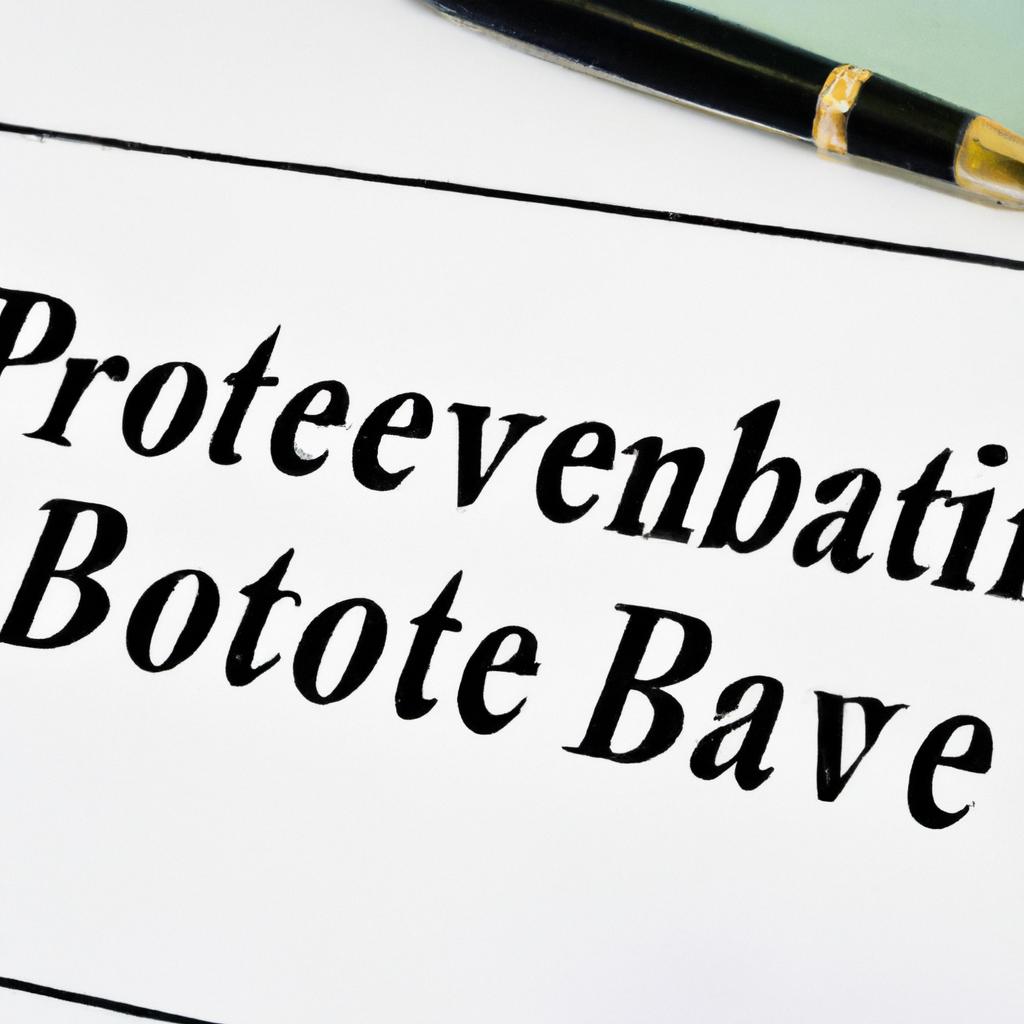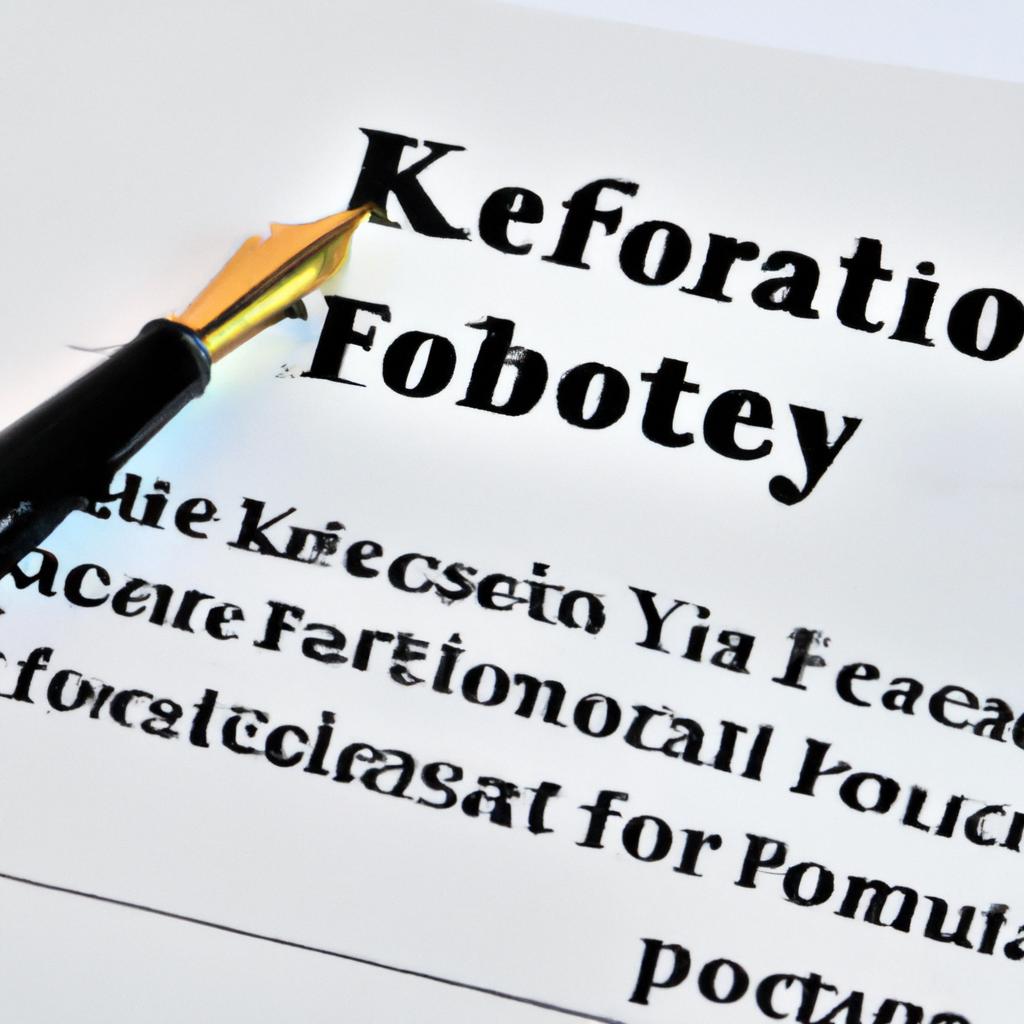Navigating the complexities of estate administration can be a daunting task, particularly when the prospect of probate looms overhead. However, not every asset requires probate to pass to heirs or beneficiaries. Understanding when probate is not required can streamline the estate settlement process and provide peace of mind to those involved. In this article, we will explore the circumstances in which probate may be bypassed, offering clarity and guidance for those seeking to efficiently distribute assets. As experienced professionals in estate planning and administration, the attorneys at Morgan Legal Group in New York City are well-versed in the nuances of probate law and are here to provide expert insight on this important topic.
Instances when probate may be avoided
In certain situations, probate may be avoided, saving time and money for those involved. Some instances when probate may not be required include:
- Joint Tenancy with Rights of Survivorship: When property is owned in joint tenancy and one owner passes away, the property automatically transfers to the surviving owner without the need for probate.
- Beneficiary Designations: Assets such as life insurance policies, retirement accounts, and bank accounts with payable-on-death designations will pass directly to the named beneficiaries, bypassing probate.

Key factors determining when probate is not necessary
There are several key factors that can determine when probate is not necessary:
- Small estates: In New York, if the total value of the deceased person’s assets is less than $30,000, probate may not be required. Instead, a small estate affidavit can be filed to transfer the assets to the heirs.
- Joint ownership: Assets held in joint tenancy with right of survivorship, tenancy by the entirety, or community property will pass directly to the surviving joint owner without the need for probate.
Other factors that may exempt an estate from probate include:
- Beneficiary designations: Assets such as retirement accounts, life insurance policies, and payable-on-death bank accounts with named beneficiaries will bypass probate and go directly to the designated recipients.
- Revocable living trusts: Assets held in a trust during the deceased person’s lifetime will pass to the beneficiaries named in the trust without the need for probate.

Strategies to bypass the probate process
When certain assets are owned jointly with rights of survivorship or with designated beneficiaries, they will automatically transfer to the surviving owner or beneficiary upon the death of the owner. These assets include bank accounts, retirement accounts, life insurance policies, and real estate owned in joint tenancy. By ensuring that your assets are titled correctly, you can bypass the probate process altogether.
Creating a revocable living trust is another effective strategy to bypass probate. By transferring your assets into the trust during your lifetime, they will not be subject to probate upon your death. This can help streamline the transfer of your assets to your beneficiaries and potentially save time and money. Additionally, utilizing payable-on-death (POD) or transfer-on-death (TOD) designations for bank accounts and brokerage accounts can also help avoid the probate process.

Important considerations for estate planning to prevent probate
One important consideration for estate planning to prevent probate is to establish a living trust. A living trust allows you to transfer your assets to a trust during your lifetime, which can help avoid probate after your death. By placing your assets in a trust, they will not be subject to the probate process, saving time and money for your loved ones.
Another way to prevent probate is to designate beneficiaries on your accounts and assets. By naming beneficiaries on your retirement accounts, life insurance policies, and bank accounts, these assets can pass directly to the designated individuals without going through probate. Make sure to keep your beneficiary designations up to date to reflect your current wishes.
Q&A
Q: When is probate not required?
A: Probate may not be required in certain situations where the deceased person’s assets are structured in a way that allows them to pass directly to beneficiaries without court intervention.
Q: What are some examples of when probate may not be necessary?
A: Some examples include assets held in joint tenancy with rights of survivorship, retirement accounts with designated beneficiaries, and assets held in a living trust.
Q: What are the benefits of avoiding probate?
A: Avoiding probate can save time and money, as well as maintain privacy since probate proceedings are a matter of public record.
Q: How can I ensure that probate is not required for my assets?
A: To avoid probate, it is important to have a comprehensive estate plan in place that includes strategies such as joint tenancy, beneficiary designations, and a living trust.
Q: Are there any downsides to avoiding probate?
A: Depending on the state, there may be certain circumstances where probate cannot be avoided, so it is important to consult with an attorney to ensure that your estate plan is comprehensive and legally sound.
Insights and Conclusions
In conclusion, understanding when probate is not required can bring peace of mind during a challenging time of loss. By taking the time to review the specific circumstances of the estate, individuals can save themselves unnecessary time, stress, and expenses. Whether it is through joint ownership, beneficiary designations, small estate affidavits, or other alternatives, knowing the options available can streamline the process of settling a loved one’s affairs. It is always recommended to seek the guidance of a legal professional to navigate the complexities of estate administration. By being informed and proactive, individuals can ensure a smoother transition of assets and provide a sense of closure for all involved. Although probate may not be required in every situation, being prepared and informed can make all the difference in honoring the wishes of the departed.
 Probate is a legal process that takes place after someone passes away. It involves proving the validity of a will and distributing the deceased person’s assets to their heirs. However, not all estates require probate, and there are certain circumstances in which this process can be avoided altogether. In this article, we will explore when probate is not required and the benefits of avoiding it.
Probate is a legal process that takes place after someone passes away. It involves proving the validity of a will and distributing the deceased person’s assets to their heirs. However, not all estates require probate, and there are certain circumstances in which this process can be avoided altogether. In this article, we will explore when probate is not required and the benefits of avoiding it.
1. When there is no will
Probate is only necessary if the deceased person left a will. If they pass away without a will, it is considered an intestate estate. In this case, the estate will go through the probate process to determine who the rightful heirs are and distribute the assets accordingly.
2. Jointly owned property
When the deceased person owned property with another person as joint tenants with rights of survivorship, the property will automatically transfer to the surviving owner without the need for probate. This commonly occurs with real estate, bank accounts, and other assets.
3. Small estates
In some states, there are laws in place that allow for simplified procedures for small estates that are below a certain value. These procedures are often much quicker and less expensive than the traditional probate process. Each state has its own laws regarding small estates, so it is essential to research the laws in your state.
4. Beneficiary designations
Certain assets, such as life insurance policies, retirement accounts, and payable-on-death bank accounts, allow for the owner to name a beneficiary. In this case, the assets will transfer directly to the named beneficiary without going through probate. It is crucial to keep beneficiary designations updated to avoid any confusion or disputes.
5. Revocable living trusts
A revocable living trust is an estate planning tool that allows the owner to transfer their assets into the trust while they are still alive. Upon their death, the assets will be distributed according to the trust’s instructions, without the need for probate. This can be a useful tool for avoiding the potential time and costs associated with probate.
6. When debts outweigh assets
If the deceased person’s debts outweigh their assets, probate may not be necessary. In this case, the estate is considered insolvent, and the creditors will have to write off the debts. The surviving family members will not be responsible for paying off any outstanding debts.
7. Community property states
In community property states, such as California, Arizona, and Texas, assets acquired during the marriage are automatically considered community property. When one spouse passes away, the other spouse automatically inherits their share of the community property without the need for probate.
8. Informal probate
Some states have a simplified probate process called “informal probate.” This process may be available for small estates or for situations where all the heirs are in agreement. The process usually involves filling out some paperwork and submitting it to the court without the need for a formal trial.
Benefits of avoiding probate
Avoiding probate can have several benefits for both the deceased person’s estate and their loved ones. These benefits include:
– Time-saving: Probate can be a time-consuming process, often taking months or even years to complete. Avoiding probate can allow assets to be distributed more quickly to beneficiaries.
– Cost-effective: The cost of probate can vary, but it can often be quite expensive and can eat into the estate’s assets. By avoiding probate, the estate can save on legal fees and other costs associated with the process.
– Maintaining privacy: Probate is a public process, meaning that the deceased person’s will and other documents become a matter of public record. Avoiding probate can help maintain the family’s privacy.
– Minimizing conflicts: Probate can often lead to disputes among family members, resulting in lengthy legal battles. By avoiding probate, the chances of conflicts among family members may be reduced.
– Flexibility in distributing assets: Probate can be a rigid and time-consuming process, making it difficult to distribute assets as the deceased person may have intended. By avoiding probate, the estate can be distributed according to the deceased person’s wishes.
In conclusion, probate is not always necessary, and there are several ways to avoid it. If you have questions about whether or not probate is required for a loved one’s estate, it is best to consult with an estate planning attorney who can guide you through the process and ensure that the deceased person’s assets are distributed according to their wishes. By avoiding probate, the estate can save time, money, and potential conflicts among family members, making the process of distributing assets more seamless and efficient.


